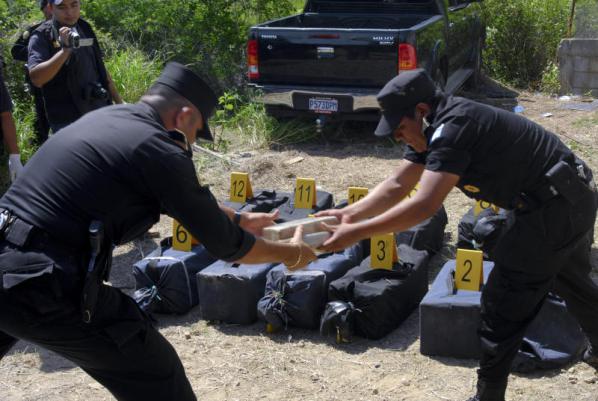Both Central American nations, hit by violence coming from local and Mexican drug cartels have deployed the Chorti Task Force along the border region known as a key thruway for cocaine from South America.
The establishment of the joint force was agreed in a meeting in the Honduran capital of Tegucigalpa between the presidents of Honduras, Juan Orlando Hernandez, and Guatemala, Otto Perez Molina, who have been combating the cartels separately up until now.

Honduras, Guatemala To Jointly Fight Drug Cartels
“Both presidents agree to the formation of the Chorti Task Force to protect the binational border,” announced a document signed by both governments following the Tegucigalpa meeting.
A report from the International Institute of Peace Research (SIPRI) reveals that in 2011, Central America and the Caribbean totaled US$7 billion in military expenditures, a 2.7 percent increase from the year before. The third country with the highest increase in military spending was Guatemala with 7.1 percent since 2010. The biggest military investor was, however, the United States, with USS$711 billion in 2011.
Guatemala created a military force to combat its drug trafficking problem with the economic and technical assistance from the U.S. Honduras followed suit with the creation of its new Tigers Security Force.
Meanwhile, the government of the so-called Northern Triangle region – Honduras, El Salvador and Guatemala – in conjunction with other Latin American and European countries, started the “Martillo Operation,” a multinational force integrated into the U.S. government’s regional security strategy and the Regional Security Initiative for Central America (CARSI).
The International Institute for Strategic Studies found that between 2009 and 2010 military forces increased in Guatemala and El Salvador, and it is expected to happen in Honduras as well.
While the corridor between Honduras and Guatemala was cited by the Brussels-based International Crisis Group as “one of the most dangerous places in Central America,” particularly along the border between the two countries, it is questionable if more military presence will make the region safer.
“Our region has transformed from a center of capital transactions and commerce to a zone controlled by organized crime, and the Sica countries (System of Central American Integration) support the idea of reproducing the same policies that failed in Colombia and Mexico. In these countries, the military solution did not resolve the problem, but has in fact increased the violence,” Jorge Coronado, member of the National Commission for Costa Rica told the Latin American Information agency in 2012.
He added that the police forces are trained by the Israeli secret service Mossad, Chilean carabineros and special military forces from Colombia and Mexico. The efforts are financed by the U.S. Drug Enforcement Agency, which also participates in the operations.
“We are on the verge of an escalation in militarization and violence, opening the pathway to a regional war,” the Costa Rican expert explained.
More about Honduras
You must be logged in to post a comment Login